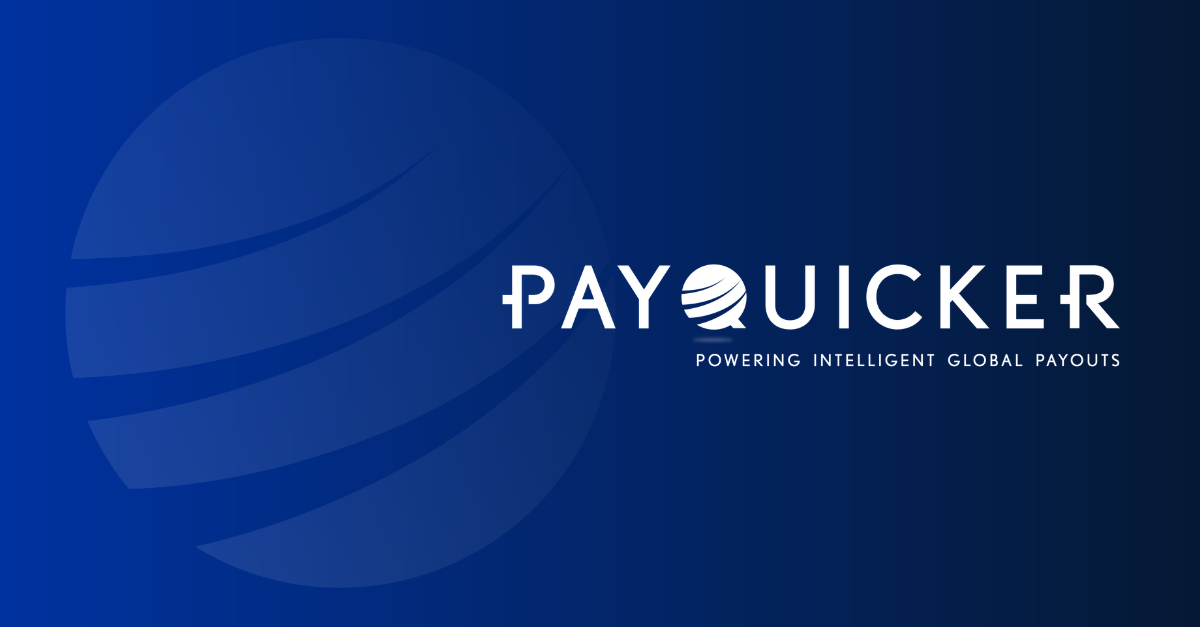Marketplace Payout Methods: Seller Retention & Business Growth
Imagine this: A seller on your platform just landed their biggest sale yet. The buyer has already checked out and is excited about their purchase. But the seller? They’re anxiously waiting for their payout, wondering if it will arrive on time—or if they’ll have to chase it down.
Delayed or complicated payouts erode trust between sellers and marketplace operators. Slow, unpredictable disbursements make sellers look elsewhere, buyers get frustrated, and your marketplace loses momentum. Whether you run an e-commerce marketplace, a freelancer platform, or a gig economy hub, your ability to deliver seamless, compliant, and instant payouts can make or break your business.
This guide dives into why marketplace payouts are critical to your platform’s success, how to streamline the payout process, and what emerging payment technologies can help you scale faster while keeping sellers and buyers happy.
Why Marketplace Payouts Matter
Marketplaces thrive on trust. Buyers trust they’ll receive what they paid for, and sellers trust they’ll get paid on time. A flawless payout process is the foundation of seller satisfaction, buyer confidence, and marketplace growth.
Here’s why an optimized payout system is a competitive advantage:
- Seller Loyalty: Quick, predictable payouts keep sellers engaged and more likely to reinvest in your platform.
- Buyer Trust: Reliable seller payouts ensure product availability and transaction continuity.
- Marketplace Growth: Seamless payouts prevent churn, increase seller acquisition, and drive revenue expansion.
But managing payouts at scale—especially across borders—isn’t simple. Regulatory compliance, currency conversion fees, fraud risks, and varied seller preferences complicate payout orchestration. The right strategy, tools, and automation can transform marketplace payouts from an obstacle into a scalable, growth-driving advantage.
What Are Marketplace Payouts?
Marketplace payouts refer to the disbursement of funds from the marketplace operator to individual sellers or service providers. This differs from buyers’ payments at checkout to purchase goods or services. In essence:
- Payments (Buyer Perspective): The buyer pays the marketplace for a product or service.
- Payouts (Seller Perspective): The marketplace operator pays the seller’s earnings after deducting fees, commissions, or other agreed-upon costs.
A robust payout process ensures that sellers receive their earnings quickly, accurately, and in a manner that suits their preferences—whether via bank transfers, digital wallets, or other payment methods.
Why an Efficient Payout System Is Critical for Online Marketplaces
- Seller Retention: When sellers’ account balances are settled reliably, they’re more likely to continue using the platform. An efficient payout schedule demonstrates the marketplace’s commitment to fairness.
- Compliance: Various local regulations, including AML regulations (Anti-Money Laundering) and KYC (Know Your Customer) rules, must be adhered to so the platform can stay compliant and avoid penalties.
- Risk Management: A secure payout structure mitigates the risk of bad actors abusing the system for fraudulent activities, helping to maintain the marketplace’s reputation.
- Smooth Cash Flow: Proper disbursement strategies help the marketplace manage its finances, balancing incoming buyer revenues with outgoing seller payouts.
- Marketplace Growth: A frictionless payout experience is a competitive advantage that draws in more sellers, leading to a more extensive inventory of products and services—key to fueling ongoing growth.
How Marketplace Payouts Work
At its core, the payout process involves these essential steps:
- Buyer Checkout: A buyer selects products or services from a seller on the marketplace and completes a transaction using available payment methods—credit card, digital wallet, or bank transfer, for instance.
- Funds Flow to Marketplace Account: The platform collects and temporarily holds the funds, ensuring that any marketplace fees or commissions can be deducted.
- Commission Deduction: The marketplace retains its share at a fixed percentage or a negotiated rate.
- Seller Earnings Disbursed: The net earnings are allocated to the seller via the agreed-upon method, such as bank deposit or digital wallet.
Role of Payment Gateways
A payment gateway is an intermediary between the buyer and the marketplace, collecting information such as card details or other payment methods. For example, a gateway like Stripe or PayPal securely processes the buyer’s transactions, ensuring regulatory compliance and a smooth checkout flow.
Commission-Based vs. Direct Seller Payments
- Commission-Based: The most common marketplace model, where the platform takes a percentage of each sale and then issues seller payouts.
- Direct Seller Payments: The buyer pays the seller directly, and the marketplace charges a listing or subscription fee. This model can be easier to manage from a compliance perspective but gives the marketplace less control over the entire transaction.
Marketplace Payout Methods
Offering multiple payment methods isn’t just a convenience when it comes to marketplace payouts—it’s a necessity. Sellers expect speed, flexibility, and security, and marketplaces that fail to deliver can lose seller trust, engagement, and, ultimately, revenue.
With PayQuicker’s global payouts orchestration platform, you don’t have to choose between speed and cost-efficiency. We provide real-time, seamless payouts across multiple methods—without the high fees, delays, and compliance complexities that come with traditional solutions.
Here’s how PayQuicker outshines the competition across all major payout methods:
Bank Transfers—Direct & Reliable
- Sellers who prefer funds deposited directly into their bank accounts benefit from PayQuicker’s direct deposit solutions, eliminating the delays common in traditional bank transfers.
- Unlike standard bank transfers that can take days to process, PayQuicker accelerates cross-border settlements and provides real-time transaction tracking.
PayPal & Digital Wallets—Faster, Smarter Payments
- Global reach with real-time payments to sellers, no matter where they are.
- Unlike other digital wallets, which lock funds in their ecosystem, PayQuicker allows instant access to earnings through seamless transfers to bank accounts or prepaid debit cards.
Instant Payouts—What Sellers Really Want
- Instant payouts aren’t a luxury—they’re an expectation. PayQuicker specializes in real-time payouts, ensuring sellers can access their earnings within seconds, not days.
- Why PayQuicker? Most instant payout options come with excessive fees—but PayQuicker minimizes costs while maximizing speed, keeping sellers happy and your marketplace thriving.
Choosing the Right Payout Structure
A marketplace must tailor its payout schedule to its business models, user base, and risk profile. Key considerations include:
One-Time vs. Scheduled Payouts
- One-Time: Ideal for marketplaces offering large, infrequent transactions, such as real estate or high-value collectibles.
- Scheduled: Common in retail or gig economy setups. Weekly or monthly payout schedules help the marketplace manage reconciliation and lower processing overhead.
Managing Refunds and Disputes
When buyers request refunds, the marketplace must decide whether to recover money from the seller’s account or cover the expense from the reserve. An automated system ensures quick refunds and minimal friction.
Handling Cross-Border Payouts
Global marketplaces face unique challenges:
- Currency fluctuations and conversion fees
- Local regulations on money movement
- Maintaining compliance with KYC, AML, and tax laws in different jurisdictions
Adopting a trusted partner like PayQuicker’s global payouts orchestration platform can streamline cross-border payouts and reduce regulatory friction.
Automating Marketplace Payouts
Automation transforms what could be a tedious, manual process into an efficient, scalable engine for growth and efficiency.
Benefits of Automation
- Faster Processing: Automated tools handle hundreds or even thousands of transactions per minute, reducing payout process times.
- Reduced Errors: Less manual intervention means fewer data entry mistakes or mismatched accounts.
- Scalability: As the marketplace volume grows, automation ensures the system keeps up with demand without burdening the finance team.
- Improved Compliance: Integrations with KYC/AML solutions help the marketplace stay compliant and detect potential fraud or involvement of bad actors more efficiently.
Best Tools for Automation
Automating marketplace payouts is essential for scaling efficiently, reducing errors, and ensuring compliance. The right payout automation platform allows marketplaces to pay sellers faster, manage cross-border transactions seamlessly, and eliminate manual reconciliation headaches.
Several payment service providers and payout platforms offer automation solutions, but not all are built for the unique needs of marketplaces. Here’s a look at some of the top tools available:
Stripe Connect
- A widely used solution for marketplace payments, allowing businesses to collect fees and disburse seller payouts.
- Supports split payments, escrow functionality, and multi-party transactions.
- Best suited for platforms already using Stripe’s payment processing.
Hyperwallet
- Designed for global payouts, providing local bank deposits, prepaid cards, and multiple payment methods.
- Focuses on cross-border disbursements, but setup can be complex for some marketplaces.
Payoneer
- A popular choice for freelancers and gig economy platforms, offering cross-border payouts and multi-currency accounts.
- Ideal for marketplaces needing mass payouts to international sellers.
Trolley (formerly Payment Rails)
- Streamlines compliance checks, tax reporting, and multi-country payouts.
- Useful for platforms prioritizing automated tax form generation and KYC verification.
PayQuicker’s Payout Automation: A Smarter, All-in-One Solution
While the above tools have their strengths, PayQuicker offers an all-in-one payout orchestration platform explicitly designed for marketplaces looking to automate, scale, and simplify their payout process.
- Real-time global payouts to sellers in multiple currencies and payment methods.
- Built-in compliance with KYC, AML, and tax regulations, reducing administrative burden.
- Automation-first approach, eliminating payout delays and manual processing errors.
- Seamless integration with existing marketplace infrastructures, ensuring a frictionless experience for both platforms and sellers.
Compliance & Tax Considerations
Navigating Global Tax Regulations
Marketplace operators often need to file various tax forms, including 1099s for sellers based in the U.S. or the VAT equivalent in other regions. Platforms that operate internationally must create transparent processes to handle different regulations and ensure sellers know their tax obligations.
AML Regulations and KYC Requirements
Many jurisdictions require marketplaces to collect information from buyers and sellers to prevent fraud and money laundering. This can involve verifying identity documents, proof of address, or bank details. A robust KYC process protects the company and sellers from potential legal issues and helps avoid the risk of fines for non-compliance with AML regulations.
Staying Compliant with Local Regulations
Each country has rules regarding money movement, data privacy, and financial reporting. Failure to comply in any region can result in hefty fines and an operational ban. Automated compliance checks built into your payout tools can save time and reduce your business’s overhead.
Common Challenges & How to Solve Them
- Delayed Payouts and Cash Flow Issues
- Solution: Offer multiple payout methods (e.g., local bank transfers, digital wallets) and rely on an automated payout process with flexible scheduling.
- Fraud Prevention in Marketplace Transactions
- Solution: Use AI-driven tools that analyze user behavior and transaction patterns to spot anomalies. Thoroughly verify sellers’ identities to prevent bad actors from infiltrating the platform.
- Handling Chargebacks and Disputes
- Solution: Implement transparent dispute resolution procedures. Reserve a small portion of the seller’s balance or require a rolling reserve to cover potential refunds or disputes without jeopardizing day-to-day finances.
Innovations in Marketplace Payouts
As marketplaces continue to evolve, several cutting-edge trends promise even more seamless payouts:
- AI-Driven Fraud Detection
- Machine learning algorithms can identify suspicious activities quickly, reducing fraudulent transactions and protecting seller earnings.
- Blockchain-Based Transactions
- Distributed ledger technologies can speed up split payments and cross-border disbursements while offering enhanced security and transparency.
- Some marketplaces experiment with stablecoins to eliminate currency volatility.
- Real-Time Payouts with Open Banking
- Regional directives like PSD2 in Europe give third-party providers direct access to banks. This real-time connectivity enables near-instant money transfers and streamlined user experiences.
Influencer Payments Explained: Methods, Rates, and Trends for Success
In many marketplaces—particularly those that connect influencers and brands—the payouts can vary depending on campaign performance, social reach, and brand budget. Below is a sample table illustrating potential influencer payouts based on niche and follower count. This can help marketplace operators understand typical rates and ensure they pay influencers fairly, keeping them motivated and engaged on the platform.
| Influencers | Niche | Follower Count | Average Influencer Payouts | Pay Influencers Model | Potential Influencer Earnings |
| Tech Influencers | Technology & Gadgets | 50k – 100k | $500 – $2,000 per campaign | Flat Fee + Commission | $2,000+ / month |
| Beauty Influencers | Cosmetics & Skincare | 100k – 500k | $1,000 – $5,000 per campaign | Commission on Sales | $5,000+ / month |
| Travel Influencers | Travel & Adventure | 100k – 300k | $800 – $3,000 per campaign | Sponsored Posts | $3,000+ / month |
| Fitness Influencers | Health & Wellness | 200k – 500k | $2,000 – $4,000 per campaign | Subscription + Commission | $6,000+ / month |
| Lifestyle Influencers | Fashion & Home Decor | 300k – 1M+ | $2,500 – $10,000 per campaign | Performance-Based Fees | $10,000+ / month |
Remember that these figures fluctuate due to campaign specifics, brand prestige, and seasonal demand. A flexible payout schedule and the ability to split payments among multiple stakeholders (e.g., influencer agencies and brand partners) can significantly improve the payout experience for everyone involved.
Final Thoughts: Make Payouts Your Competitive Edge
Your marketplace isn’t solely about connecting buyers and sellers—it’s about ensuring every transaction ends with trust and satisfaction. Sellers don’t just want to make sales; they want fast, reliable payouts that let them reinvest in their businesses, scale their operations, and stay engaged on your platform.
A broken payout process leads to churn, lost revenue, and negative word-of-mouth. On the other hand, a frictionless, automated, and compliant payout system becomes your competitive advantage, helping you attract top sellers, expand globally, and future-proof your platform.
Take Action: Upgrade Your Payout System Today
The most successful marketplaces don’t just process payments—they orchestrate seamless payouts that drive loyalty, efficiency, and growth.
- Give sellers the preferred payout options—bank transfers, digital wallets, instant payouts.
- Automate for speed and accuracy—eliminate manual errors and reduce processing time.
- Stay ahead of compliance—KYC, AML, and tax laws shouldn’t slow you down.
- Leverage cutting-edge payment tech—AI fraud detection, real-time APIs, blockchain.
- Turn payouts into a seller retention tool—fast; transparent disbursements keep sellers coming back.
Ready to optimize your marketplace payouts? Book a Demo today and see how PayQuicker’s global payout platform can help you scale faster, reduce risk, and keep your sellers happy. 🚀











